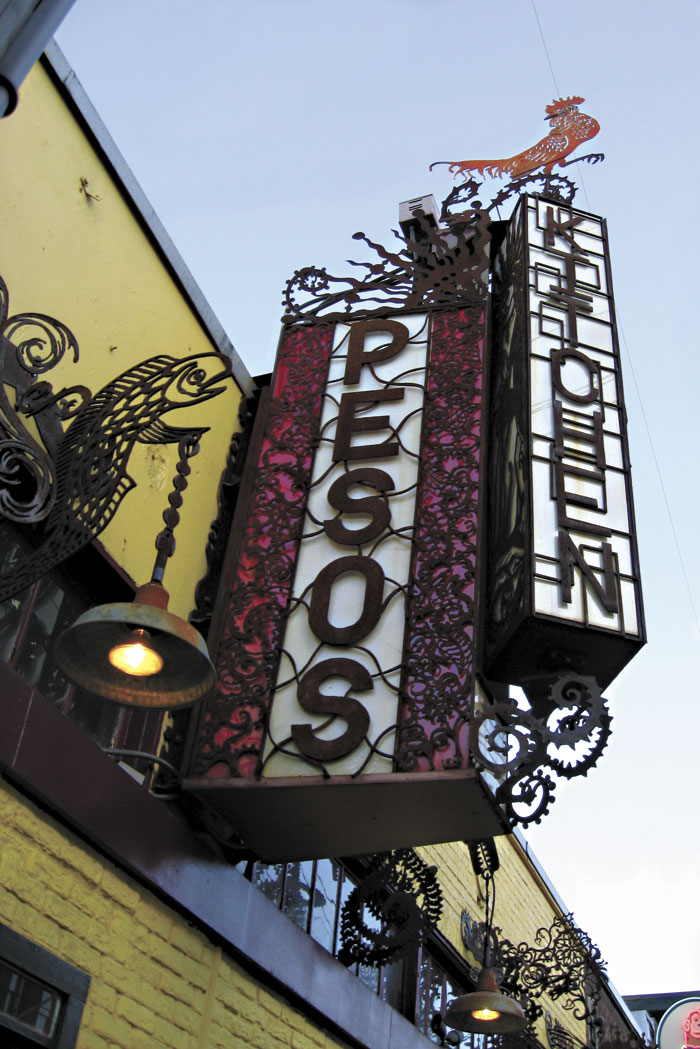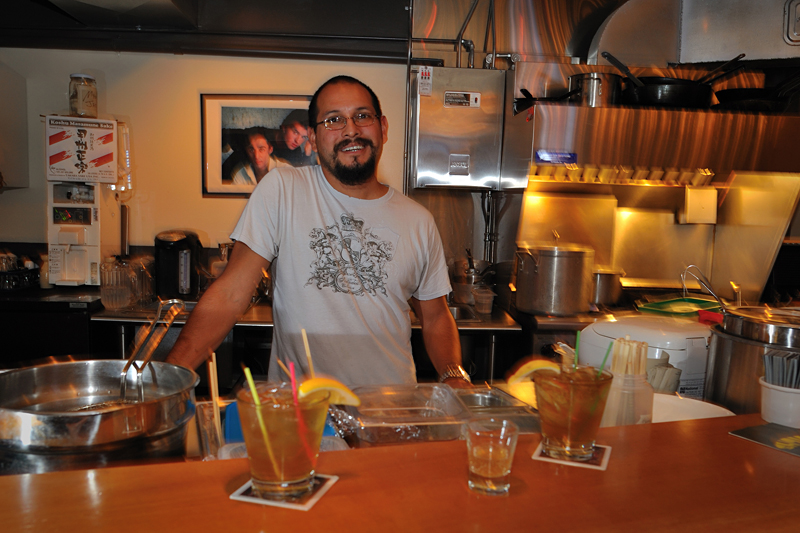On Super Bowl Sunday 2004, Brian Hutmacher wasn’t thinking about the point spread or Janet Jackson’s wardrobe malfunction. He was staring at the metallic, Mexican-inspired decor of the just-opened Matador restaurant in Ballard, thinking it looked a lot like his own wildly popular tequila-and-nachos late-night hangout, Peso’s.
Then he saw the menu. The main entrée page had 11 items. “Eight of those 11 items are identical in name, description, price, and preparation to what is on the menu at Peso’s,” Hutmacher later wrote in a 20-page, obscenity-laced letter to one of Matador’s owners.
In the letter, he went on to accuse Nate Opper, a former Peso’s bartender, of stealing recipes, setting up a nearly identical restaurant, and siphoning business away from Hutmacher’s lower Queen Anne hot spot: “In taking the easy, painless way to success that involved no real risk-taking or ingenuity on [Opper’s] part and also by taking what isn’t his and shouldn’t ever be, Nate made both a personal and business enemy in me.”
Next Monday, Hutmacher’s lawsuit against Matador—its investors, designers, and decorators—is scheduled to go to trial. Hutmacher claims Matador, which has since expanded to five locations, so closely imitates Peso’s in appearance and food that customers confuse the two; people who live near a Matador may not see any reason to go to Peso’s, he says in his complaint.
Relations between Peso’s and Matador weren’t always so acrimonious. Hutmacher, a former waiter at Wild Ginger and El Gaucho, bought Peso’s with his brother in 1998 and hired Opper as a bartender soon after. The three men became friends, Hutmacher says in court records. Around that time, Opper met Zak Melang, an employee at Floyd’s Place, a block away from Peso’s. In late 2002, according to Hutmacher’s complaint, Opper and Melang told Hutmacher they were thinking about opening their own bar in Fremont. Hutmacher says he expressed his support, giving advice on decor, even suggesting a barbecue theme and offering to let them use his sauce recipes.
A year later, Opper and Melang had decided on a new location in Ballard and had changed their restaurant to a Mexican theme. Hutmacher still had no problem with the project, he says in a court declaration. But in the months leading up to Matador’s opening in January 2004, Hutmacher says, a decorator tipped him off that the new restaurant looked a lot like Peso’s. He claims he asked Opper about it, only to be assured that the restaurants would have a very different feel.
A few weeks later, according to Hutmacher’s declaration, Opper showed him a copy of the planned menu. He claims he told Opper it was a problem, but by February, the dishes were still listed. “I went to Matador’s opening night, and was shocked at what I saw,” Hutmacher says. He filed suit in January 2007.
Opper and Melang remember it all quite differently, according to statements filed in court. They say Hutmacher was well aware of what they were doing. But instead of taking action against them at the time, he was “watching from the sidelines and waiting, as the defendants continued to invest time, energy, and capital in their existing restaurants and in continuing to expand to new locations” (to date, in West Seattle, Tacoma, Redmond, and Portland). Opper and Melang claim Hutmacher didn’t pursue legal action because they had similar decorations and food; he did it because they were so successful. They also say the recipes were widely available, given to every staff member at Peso’s, and freely shared with customers. On top of that, they say, the Peso’s menu is “generic, not inherently distinctive.”
These days the menus are more distinct, though both restaurants still serve prawns and habanero sauce, one of the contested recipes. Both businesses also seem to be doing well. On a recent weekday evening, the West Seattle Matador hummed. At midnight during Bumbershoot weekend, noisy crowds hovered at Peso’s door, waiting to get in. Hutmacher has leased the spaces next door, and in April he applied for a liquor license to open Toulouse, a French Quarter–themed restaurant.
King County Superior Court judge Catherine Shaffer dismissed several of Hutmacher’s claims, including one that Matador was committing fraud by claiming the recipes as originals, and another against a contractor who helped design Matador. She also ruled that because Hutmacher freely turned over the sauce recipes, they were lawfully used by Opper and Melang. But the overriding argument, that Matador’s menu violates trade secrecy laws, is still live, and opening arguments are scheduled to begin Monday.







